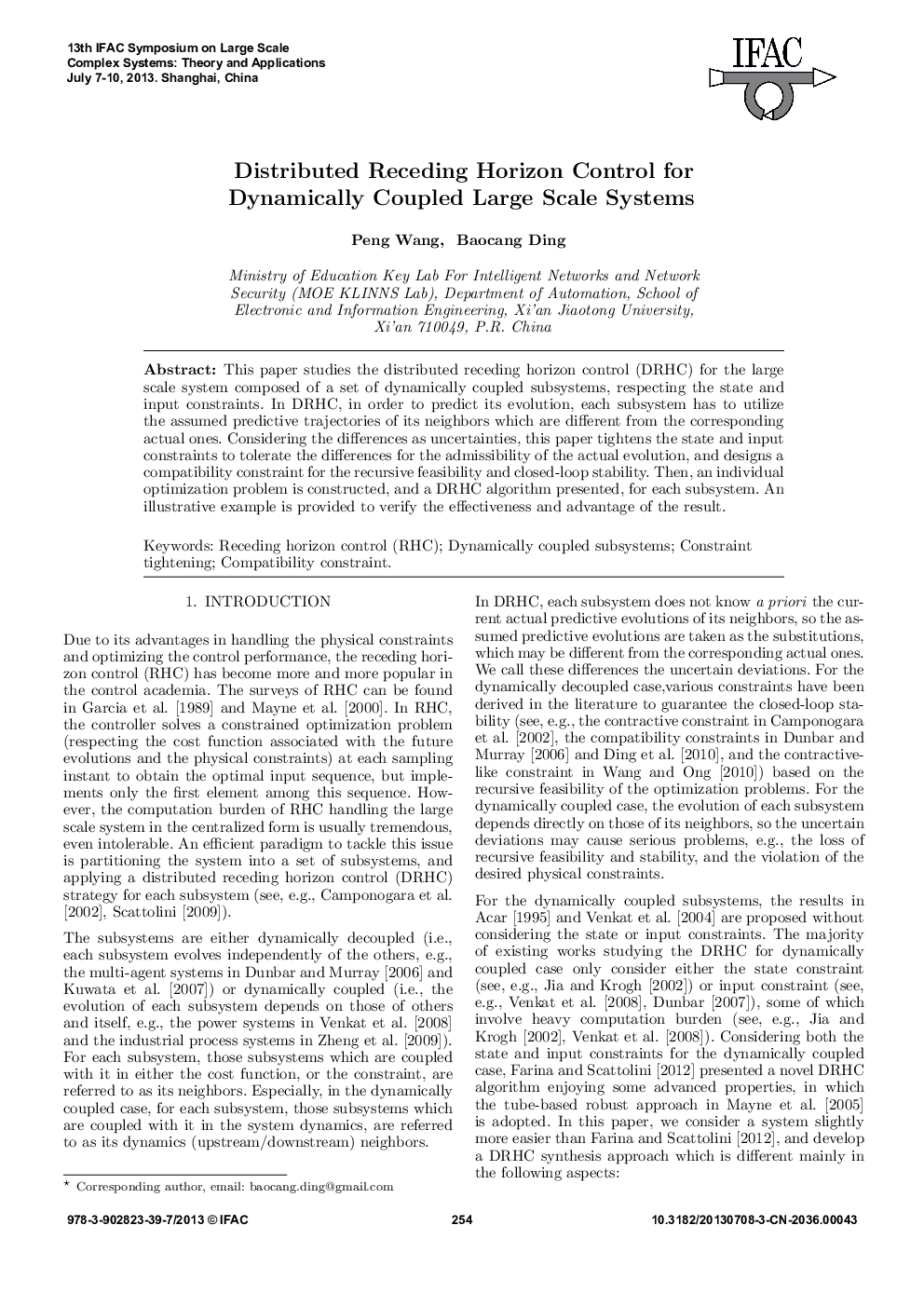| Article ID | Journal | Published Year | Pages | File Type |
|---|---|---|---|---|
| 712684 | IFAC Proceedings Volumes | 2013 | 6 Pages |
This paper studies the distributed receding horizon control (DRHC) for the large scale system composed of a set of dynamically coupled subsystems, respecting the state and input constraints. In DRHC, in order to predict its evolution, each subsystem has to utilize the assumed predictive trajectories of its neighbors which are different from the corresponding actual ones. Considering the differences as uncertainties, this paper tightens the state and input constraints to tolerate the differences for the admissibility of the actual evolution, and designs a compatibility constraint for the recursive feasibility and closed-loop stability. Then, an individual optimization problem is constructed, and a DRHC algorithm presented, for each subsystem. An illustrative example is provided to verify the effectiveness and advantage of the result.
